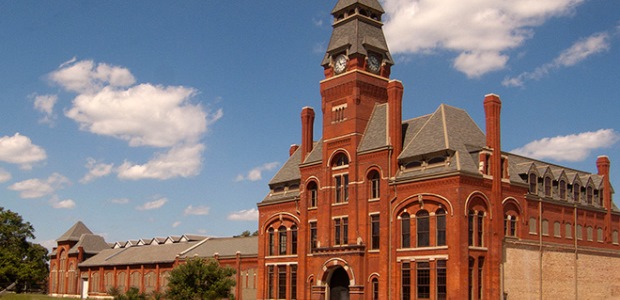
Chicago's First National Park is Landmark in U.S. Labor History
The Pullman National Monument is the site of the town built by George Mortimer Pullman's Pullman Palace Car Company to house railcar manufacturing workers and their families. Amid the Pullman workers' crippling strike of 1894, Congress enacted a law making Labor Day a federal holiday.
President Obama on Feb. 19 designated a landmark site of the U.S. labor movement on Chicago's South Side as a national monument. The 200-acre Pullman National Monument is the site of the town erected by George Mortimer Pullman's Pullman Palace Car Company to house railcar manufacturing workers and their families. This was a "completely planned model community," according to the National Park Service's news release about the new monument, "representing a departure from the overcrowded and unsanitary living conditions found in working-class districts in other 19th century industrial cities and towns. All the town's facilities and structures—industrial, cultural, religious, recreational, and residential—were coordinated to provide ideal conditions for the workingmen. Most of these historic features remain intact today."
Pullman introduced sleeper cars to American railroads, and he envisioned the town as a way to attract highly skilled craftsmen to work in his factories. His company also recruited the sleeping cars' first porters, waiters, and maids from the population of former house slaves. "These service jobs, while lower-paying, held prestige in the African American community and played a major role in the rise of the African American middle class and the development of the civil rights movement of the 20th Century," the release explains.
The company's orders declined during a depression that began in 1893, and when the company cut its workers' wages but not the rent it charged them for company housing, the Pullman strike of 1894 began. "American Railway Union members nationwide boycotted Pullman cars, paralyzing most of the railroads west of Detroit and threatening the national economy. Invoking the Sherman Antitrust Act for the first time against a union, President Grover Cleveland intervened with Federal troops, and the strike ended violently by mid-July 1894," it states. "Before the Pullman strike ended, Congress passed legislation designating Labor Day a Federal holiday in an effort to placate workers throughout the country."